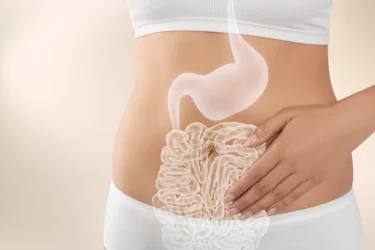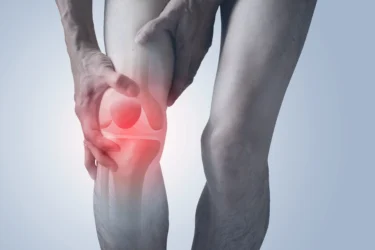Pineapple (Ananas) Juice: Uses, Benefits, Side Effects, and More!
By Dr Anuja Bodhare +2 more

Get,

to manage your symptom
Get your,


4 Cr+ families
benefitted

OTP sent to 9988776655



You’ve successfully subscribed to receive
doctor-approved tips on
Whatsapp

Get ready to feel your best.

Hi There,
Download the PharmEasy App now!!


Register to Avail the Offer
Send OTPBy continuing, you agree with our Privacy Policy and Terms and Conditions

Hi There,
Sign up on PharmEasy now!!
Trusted by 4 crore+ families

OTP sent to 9988776655



You have unlocked 25% off on medicines




Code: NU25
By Dr Anuja Bodhare +2 more
Table of Contents
Pineapple is known to be the queen of fruits because of the excellent taste and refreshing flavour it bears. After banana and citrus, pineapple is considered the third most important fruit in the world. Pineapple is botanically called Ananus comosus. The taste and quality of pineapple juice depend upon the season, geographical areas, process and time of harvest. Pineapple fruit’s refreshing flavour and taste are contributed by the perfect balance between sugar and acid1,2.

The pineapple is a herbaceous annual plant that grows in tropical regions. The leading producer of pineapples are Brazil, Thailand, China, the Philippines, and others include India, Kenya and Nigeria. There are different varieties of pineapples, namely Honey King, Pernambuco, Giant Kew, Red Spanish, and Smooth Cayenne. Pineapples may be beneficial and used in the diet of people suffering from diseases. Pineapple juice is a fresh, concentrated liquid prepared from pineapple fruit pulp. It is a natural cocktail of beneficial enzymes, vitamins and minerals, which may make it a beneficial morning drink1,3.
So, read along to know more about the potential benefits, medicinal uses and side effects of pineapple juice on human health.
Did you know?
Pineapple’s nutritional value may make it healthier food. A single glass of pineapple juice offers 53 calories of energy and other essential nutrients which might help you to kick start your day4.
The nutrients in pineapple juice are as follows:
Pineapple juice may have the following properties:
Pineapples offer protection against age-related eye degeneration and loss of vision. about three servings of pineapple daily can prove to be fruitful for your eyesight6.
Dr. Rajeev Singh, BAMS
Pineapples are used in various foods. In many cultures, pineapple has been used for different potential purposes. The nutritional value and beneficial components of pineapple make them even more popular among people2.

Pineapple juice may be a digestive aid. It may have nutrients like carbohydrates, fibre, calcium, potassium, vitamin C and certain minerals that might help digestion. The main digestive enzyme, bromelain, may be responsible for breaking down the large protein molecules. It might stimulate digestion and enhance the functioning of the intestines. The detoxification activity of pineapple might help in clearing the microflora of the stomach and help in constipation1,3.
However, this information is insufficient. We require more studies to understand the potential benefit of pineapple juice in overcoming digestion problems in humans.
Pineapple residues left after the processing of pineapples may be of use as a preservative for food, cosmetics, and other potential purposes. The pineapple waste is full of bioactive compounds like ferulic acid, vitamins A and C, saponins, flavonoids, phytosterols, tannins, and steroids7.
Dr. Smita Barode, BAMS, M.S.

The benefit of drinking pineapple (Ananas) juice is that it might help maintain bone health. Pineapple contains trace minerals like manganese, which may be responsible for forming bones and connective cells. The antioxidant properties of vitamin C may help in the formation of bone collagen, muscle, cartilage and blood vessels. Hence, pineapple juice may be helpful in building healthier, stronger bones and a muscular body. Drinking pineapple juice by older adults might help to strengthen their bones. It might also promote bone growth in young people1.
Pineapple wastes are richly composed of lignin and cellulose, which are considered raw materials for paper production. Hence, pineapple waste which is otherwise cumbersome to dispose of could be a potential source of pulp and paper production, thus sparing the woods8.
Dr. Anuja Bodhare, B.A.M.S, M.D (Ayu)

Diarrhoea might significantly cause illness and death in children. Pineapple contains an enzyme called bromelain, which may be useful in diarrhoea. The primary pathogens responsible for diarrhoea produce toxins in the digestive tract, particularly in the intestines. The enzyme bromelain may have the ability to counteract these toxins. Pineapple juice might also stop the attachment of pathogenic bacteria to the surface of the intestine and might result in anti-diarrheal activity2,6.
These studies are insufficient and need more research to provide the effectiveness of pineapple juice in managing diarrhoea in people.

Some people experience severe joint pain, which might be related to osteoarthritis. Various research suggests that pineapple may have a pain-killing effect which might help relieve achy joint pain, similar to certain drugs used in pain. According to the research conducted by Akhtar et al., pineapple juice contains vital components that might enhance pain relief and decrease inflammation in the joints2,3.
However, these studies are not sufficient. Furthermore, research is needed to prove its extended use in osteoarthritis issues in humans.
Pineapple provides more than the recommended amount of an essential yet trace element manganese. It is useful to boost your metabolism, response, and healthy bones3.
Dr. Ashok Pal, BAMS

Pineapple juice might show anti-tumor and anti-cancer activity. The enzyme bromelain may help to regulate the division and spreading of cancerous cells. The anti-tumor activity may be due to the anti-inflammatory properties of pineapple. One of the research on human cell lines (Chandler and Mynott, 1998) suggests the bromelain enzyme may have the ability to kill tumor cells2.
These studies are insufficient and need more research to support the significance of pineapple juice in dealing with tumours in humans.

Though studies show the benefits of pineapple juice in various health conditions, this information is insufficient. Therefore, more studies are needed to establish the true nature of the benefits of pineapple juice on human health are necessary.
Daily consumption of pineapples may be beneficial to lower the cholesterol levels in the body, without any significant effect on the kidneys. Thus, pineapples may be useful to prevent heart diseases caused by high cholesterol level in the body5.
Dr. Siddharth Gupta, B.A.M.S, M.D (Ayu)
Pineapple juice is a good source of nutrients, which may make it beneficial for health. The pineapple juice uses are as follows:
Also Read: Carrot Juice: Uses, Benefits, Side Effects and More!
Pineapple is a valuable food source and might be considered safe for consumption.5 Still, it may have some common side effects as follows:
However, immediately contact your physician if you experience any side effects. They will be able to treat you appropriately.
Also Read: Beetroot Juice: Uses, Benefits, Side Effects and More!
General precautions need to be followed while having pineapple juice.
Fruit juice can influence the activity of a drug. The nutrient content of the juices may interfere with some enzymes and can cause herb-drug interaction. This might change the drug efficacy and duration of action of the drug3.
The short-term consumption of pineapple juice might significantly increase the bioavailability of respiratory and joint pain medications. These drugs might interact with pineapple juice; thus, patients should be cautious due to the potential risk of a drug interaction3.
Also Read: Pomegranate (Anar) Juice: Uses, Benefits, Side Effects and More!
Vitamins in pineapple juice are vitamin C, thiamin, niacin, riboflavin, vitamin B6 and folate4.
Vitamin C, also called ascorbic acid, acts as an antioxidant that might be beneficial in bacterial and viral infections and might help absorb iron in the body1. Due to insufficient studies on humans, the beneficial properties of pineapple juice cannot be confirmed. Thus, it is always best to consult a doctor.
Pineapples might help to boost the energy of the body. It contains 53 calories in 100 grams of fruit4. However, you can consult an Ayurvedic physician before taking pineapple juice.
One of the advantages of drinking pineapple juice for the skin is that it might help make the skin firm. It contains an enzyme that produces certain substances that may fight against pain and swelling, which may help in the skin healing process after injury1,4. However, people should acquire more details from their doctor about using pineapple juice for skin health.
Yes. Pineapple juice might benefit weight loss. It contains vital nutrients and enzymes that may help to increase the fat-burning process and may be beneficial in maintaining the ideal weight of the body1,4. However, you should get more information from your doctor about using pineapple juice for weight loss.
1. Farid Hossain M. Nutritional Value and Medicinal Benefits of Pineapple. Int J Nutr Food Sci. 2015 Feb;4(1):84-88. Available from: https://www.researchgate.net/publication/281613779_Nutritional_Value_and_Medicinal_Benefits_of_Pineapple
2. Helmy SA, El-Bedaiwy HM, El-Masry SM. Effect of pineapple juice on the pharmacokinetics of celecoxib and montelukast in humans. Ther Deliv. 2020 Jun;11(5):301–311. Available from: https://doi.org/10.4155/tde-2020-0020
3. Cleveland Clinic. The Many Health Benefits of Pineapple. 2021;(Dv). Available from: https://health.clevelandclinic.org/benefits-of-pineapple/
4. Nipa Tochi B, Zhang W. Therapeutic Application of Pineapple Protease (Bromelain): A Review. Pak J Nutr. 2008 Jan;7(4):513–520. Available from: https://www.researchgate.net/publication/26563756
5. Seeneak P, Kumphune S, Malakul W, Chotima R, Nernpermpisooth N. Pineapple consumption reduced cardiac oxidative stress and inflammation in high-cholesterol diet-fed rats. Nutr Metab (Lond). 2021 Apr 7;18(1):36. doi:10.1186/s12986-021-00566-z. PMID: 33827626; PMCID: PMC8028712. Avaiable from: https://pubmed.ncbi.nlm.nih.gov/33827626/
6. Joy PP. Benefits and uses of pineapple. Vazhakulam (Kerala, India): Pineapple Research Station, Kerala Agricultural University; 2010 [cited 2025 Dec 19]. Available from: https://www.researchgate.net/publication/306017037_Benefits_and_uses_of_pineapple
7. Lagnika C, Adjovi YCS, Lagnika L, Gogohounga FO, Do-Sacramento O, Koulony R, Sanni A. Effect of combining ultrasound and mild heat treatment on physicochemical, nutritional quality and microbiological properties of pineapple juice. Food Nutr Sci. 2017;8(2):227–241. doi:10.4236/fns.2017.82015. Available from: https://www.scirp.org/journal/paperinformation?paperid=74245
8. Mahatme SS, Kanse NG, Bandsode AK. Pulp and paper production from pineapple leaves as a substitute to wood source: a review. Int J Creat Res Thoughts (IJCRT). 2018 Apr;6(2):20–26. Available from: https://ijcrt.org/papers/IJCRT1813604.pdf
Disclaimer: The information provided here is for educational/awareness purposes only and is not intended to be a substitute for medical treatment by a healthcare professional and should not be relied upon to diagnose or treat any medical condition. The reader should consult a registered medical practitioner to determine the appropriateness of the information and before consuming any medication. PharmEasy does not provide any guarantee or warranty (express or implied) regarding the accuracy, adequacy, completeness, legality, reliability or usefulness of the information; and disclaims any liability arising thereof.
Links and product recommendations in the information provided here are advertisements of third-party products available on the website. PharmEasy does not make any representation on the accuracy or suitability of such products/services. Advertisements do not influence the editorial decisions or content. The information in this blog is subject to change without notice. The authors and administrators reserve the right to modify, add, or remove content without notification. It is your responsibility to review this disclaimer regularly for any changes.
Comments

Leave your comment...
You may also like
Comments